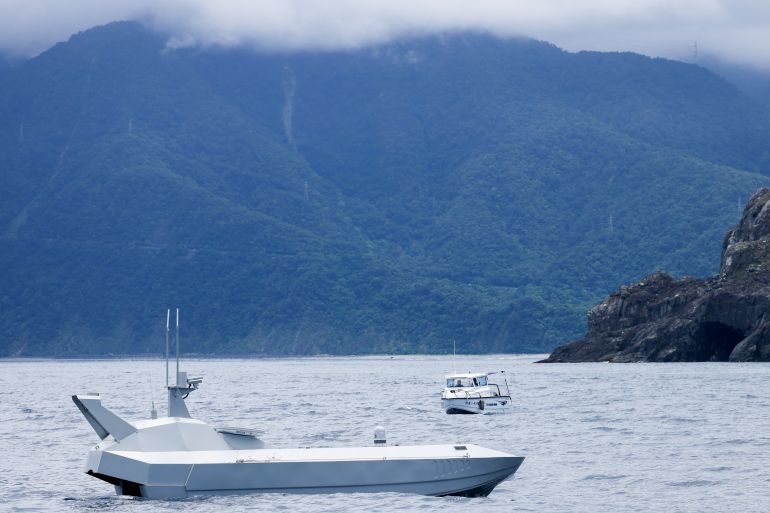Taiwan is strategically prioritizing the development of a robust drone fleet as a cornerstone of its defense against potential threats from Beijing. This pivot underscores the island’s commitment to fortifying its security in the face of escalating regional tensions.
The initiative showcases a range of advanced unmanned aerial and maritime vehicles, including stealth-capable craft and explosives-carrying drones, designed to enhance Taipei’s defensive capabilities. These indigenous innovations are seen as critical assets in safeguarding the self-ruled island and its national security.
At the heart of Taiwan’s defense doctrine is the “porcupine strategy,” an asymmetric warfare approach aimed at making any potential China invasion prohibitively costly for an aggressor. Drones are central to this military strategy, providing versatile tools for intelligence, surveillance, reconnaissance, and direct engagement.
To accelerate this strategic shift, the government launched the “Drone National Team” initiative, fostering a domestic industry capable of producing military-grade and dual-use drones. This ambitious program seeks to ensure self-sufficiency in drone technology production, even under challenging conditions.
Despite the urgency, experts note that Taiwan’s progress in expanding its domestic drone sector has been inconsistent. Concerns persist regarding the scale of production targets, which some analysts deem insufficient to meet the projected demands of a large-scale conflict, impacting Taiwan defense readiness.
Analysts also emphasize the crucial role of tactical deployment in conjunction with technological acquisition. Debates within Taiwan’s defense circles focus on tailoring a drone strategy unique to the Taiwan Strait’s specific operational environment, rather than merely adopting external models for asymmetric warfare.
Furthermore, the success of Taiwan’s drone defense hinges on its ability to counter sophisticated electronic warfare tactics, which can jam or mislead unmanned systems. Integrating robust anti-drone technologies and operational adaptability into its planning is paramount for the military.
Ultimately, Taiwan’s leaders envision the island as a significant hub for drone technology and manufacturing. This strategic vision, while ambitious, faces significant logistical and economic hurdles, including reliance on foreign markets for critical high-tech components necessary for advanced drone technology.
The ongoing efforts underscore Taiwan’s resolve to develop a resilient and innovative defense posture, continuously adapting its arsenal and strategies to meet evolving geopolitical challenges and ensure its continued autonomy and national security.






Leave a Reply